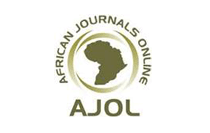Mansoura Veterinary Medical Journal
Document Type
Original Article
Subject Areas
Biochemistry and Physiology
Keywords
Mammary carcinoma, cyclin D1, pumpkin seed
Abstract
Objective: To evaluate the potential protective effect of pumpkins’ seed extract on oxidative stress and cyclin D1 expression associated with mammary gland carcinoma in rats. Design: Randomized controlled experimental study. Animals: Forty female Sprague Dawley rats. Procedures: Rats were allocated equally to four groups (10 rats each); group 1 (control group); group 2 received 7, 12 dimethylbenzanthracene (DMBA) subcutaneously in the mammary region to induce carcinoma. Group 3 received pumpkin seed extract at 300 mg/kg body weight orally, and group 4 was treated with both pumpkin seed extract and DMBA. Animals were euthanized after 8 weeks of treatment, and tissues from mammary gland were collected and divided into three portions. The first portion was used to determine antioxidant and oxidative stress markers; the second one was stored in RNA for later estimation of Cyclin D1 expression, and the last portion was stored in neutral buffered formalin (10%) for histopathological examination. Results: Levels of Nitric oxide, Malondialdehyde and Reduced Glutathione, as well as activity of Glutathione-S-transferase and superoxide dismutase (SOD) showed a significant decline in rats supplemented with pumpkin seed extract and subjected to induced mammary carcinoma in comparison with diseased non-supplemented rats (P <0.05). In addition, there was a down-expression in cyclin D1 expression in rats supplemented with pumpkin seed extract. Conclusion and clinical relevance: Pumpkins’ seed extract can alleviate the oxidative stress and cyclin D1 expression associated with experimentally induced mammary carcinoma in rats. Further studies are needed to get an evidence for the use of pumpkin seed extract in the clinical practice.
How to Cite This Article
AboSeda, Walaa
(2019)
"The Possible protective effect of pumpkin seed extract on mammary carcinoma in rats: An experimental study,"
Mansoura Veterinary Medical Journal: Vol. 20:
Iss.
3, Article 3.
DOI: https://doi.org/10.21608/mvmj.2019.23.206
Receive Date
2019-06-15
Accept Date
2019-06-15
Publication Date
9-30-2019






